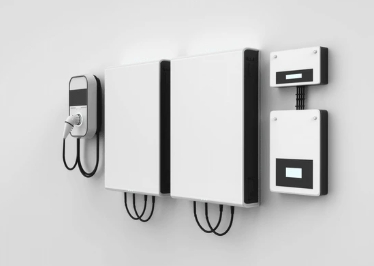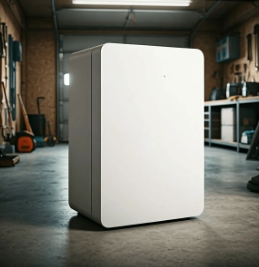In today’s world, rising electricity costs are a major concern for homeowners. Many are turning to home energy storage solutions to reduce their electricity bills and increase energy independence. By efficiently storing energy for later use, these systems allow homeowners to optimize their power consumption and minimize reliance on the grid. With advancements in battery technology and smart energy management, these solutions are becoming more accessible and affordable, making them a viable investment for homeowners looking to cut down on energy expenses while enhancing the sustainability of their households.
How Home Energy Storage Suppliers Can Help Lower Your Electricity Bills
Home energy storage suppliers provide advanced battery storage solutions that enable homeowners to store excess energy and use it during peak hours, reducing their electricity costs. By integrating with renewable energy sources, these systems further maximize savings and energy efficiency. The ability to strategically manage energy consumption helps homeowners avoid high utility bills and take full advantage of available incentives and rebates for energy-efficient solutions.
Table of Contents
The Role of Home Energy Storage Systems in Reducing Electricity Costs
Energy storage systems allow homeowners to take advantage of lower electricity rates by storing power during off-peak hours and using it when demand—and costs—are higher. These systems also reduce the need for expensive peak-demand electricity from the grid, making energy consumption more cost-effective. Additionally, home energy storage systems help mitigate the impact of fluctuating energy prices, ensuring a more predictable and manageable electricity bill. As more households adopt these systems, the overall demand on the grid decreases, leading to a more stable and sustainable energy infrastructure.
Discover how home energy storage can maximize savings and transform energy consumption.

Understanding Home Energy Storage: How It Works
Home energy storage systems use high-capacity batteries to store electricity for later use. These systems are often paired with solar panels to store excess energy generated during the day, which can then be used at night or during power outages. By doing so, homeowners can decrease their dependence on the grid and ensure a reliable energy source at all times.
Modern battery storage solutions integrate smart technology, allowing real-time monitoring and automated energy management for optimized efficiency. These systems use advanced battery management software to predict usage patterns, ensuring energy is stored and utilized in the most cost-effective manner. Additionally, some energy storage systems are designed with modular scalability, allowing homeowners to expand their storage capacity as their energy needs grow. This adaptability ensures long-term benefits, making energy storage an ideal investment for those looking to future-proof their homes against rising energy costs.
Time-of-Use Optimization: Utilizing Stored Energy During Peak Hours
Electricity rates fluctuate throughout the day, with peak hours typically being the most expensive. Home energy storage systems help manage these costs by storing electricity during off-peak hours when rates are lower and discharging stored energy during peak times. This process, known as time-of-use optimization, enables homeowners to avoid high electricity costs, making energy consumption more cost-efficient.
Additionally, advanced systems allow users to program energy usage based on their utility’s time-of-use pricing, maximizing financial savings. Many energy providers offer incentives for reducing energy consumption during peak periods, and home battery storage makes it easier for homeowners to take advantage of these cost-saving programs. Over time, these strategic energy management practices can lead to substantial reductions in electricity bills while also helping to stabilize the grid and reduce strain during high-demand periods.
Reducing Grid Dependence: Enhancing Energy Independence
Relying solely on the traditional power grid can lead to high electricity expenses and vulnerability to outages. Home energy storage solutions provide an alternative by reducing grid dependence and enabling self-sufficiency. By integrating with solar energy storage, these systems allow homeowners to generate and store their own power, reducing their reliance on utility companies.
This not only leads to lower electricity bills but also provides a more sustainable and resilient energy solution for households. Energy storage is particularly beneficial in areas prone to power outages, as stored energy can be used as backup power, ensuring an uninterrupted electricity supply. With the increasing adoption of renewable energy sources, reducing grid dependence with home batteries also contributes to a cleaner, more sustainable environment by minimizing reliance on fossil-fuel-generated electricity.
Financial Benefits: Calculating Savings on Electricity Bills
Investing in a home energy storage system offers significant financial benefits. Homeowners can lower their electricity expenses by strategically using stored energy during peak rate periods. Additionally, some regions offer incentives and rebates for adopting energy-efficient storage solutions, further enhancing cost savings. By calculating the potential return on investment, homeowners can see how reducing grid dependence with home batteries leads to long-term financial gains.
The financial benefits extend beyond direct electricity savings. Many energy storage systems come with warranties of 10 years or more, ensuring long-term reliability and cost-effectiveness. Some battery storage solutions also qualify for tax credits or government subsidies, making them an even more attractive investment. Moreover, in some areas, homeowners with battery storage can participate in demand-response programs, where they receive financial compensation for supplying excess stored energy back to the grid during peak periods. These incentives, combined with lower electricity bills, make home energy storage a smart financial decision for many households.
Choosing the Right Supplier: Key Factors to Consider
Selecting a reliable home energy storage supplier is crucial for ensuring optimal performance and long-term benefits. Key factors to consider include battery efficiency, warranty periods, scalability, and compatibility with existing energy systems. Suppliers with a strong track record in providing advanced battery storage systems and seamless integration with renewable energy sources offer the best value for homeowners.

Additionally, assessing customer reviews, supplier credibility, and available after-sales support can help make an informed decision when choosing an energy storage provider. Some of the most reliable home energy storage suppliers offer remote monitoring capabilities, allowing homeowners to track their energy usage and system performance in real time. Choosing a supplier that provides excellent customer support and long-term service agreements ensures homeowners receive assistance whenever needed, making the investment in energy storage more secure and beneficial in the long run.
Conclusion
Lower your electricity bills and enhance energy efficiency with home energy storage. Contact Hicorenergy or send email to service@hicorenergy.com today to explore the best solutions for your needs. Investing in energy storage is not just a way to save money—it is a step towards a more sustainable and energy-independent future.
-scaled.png)
